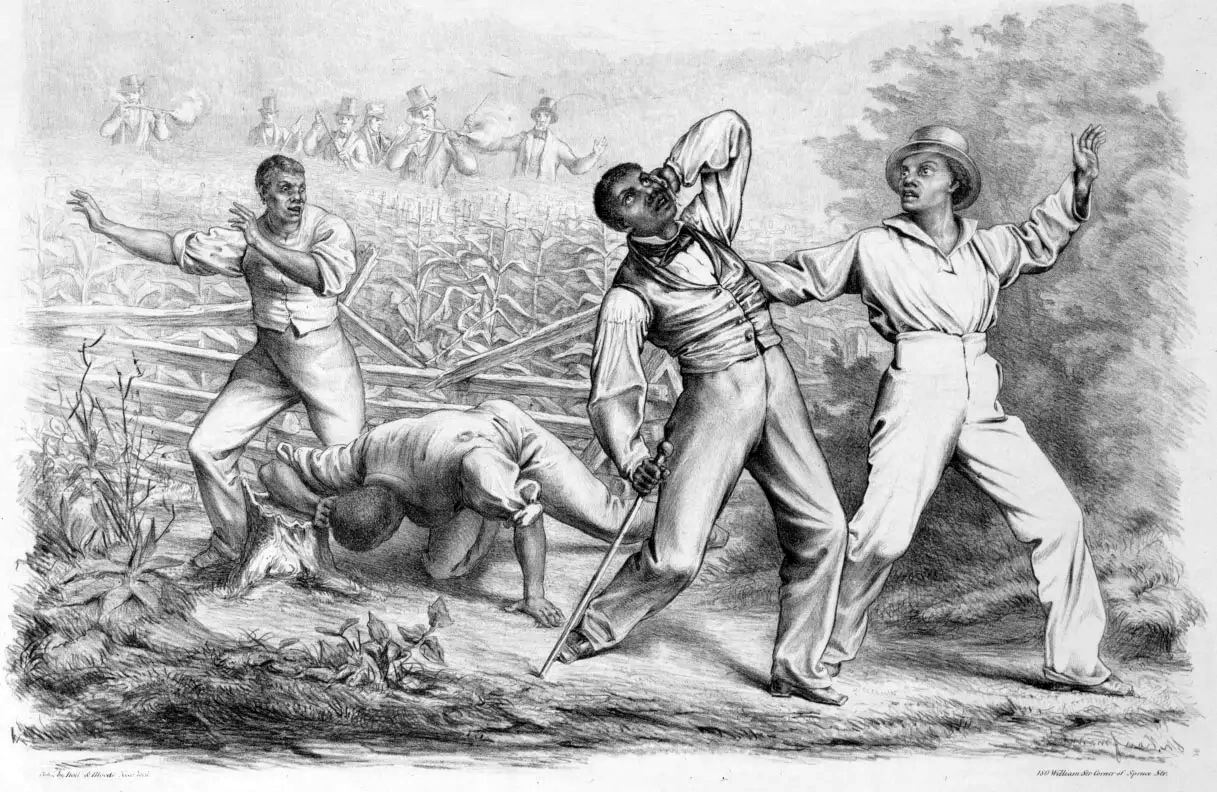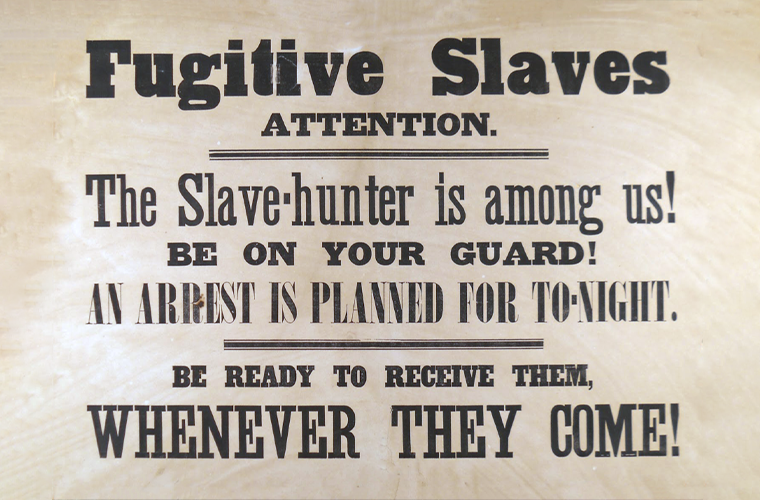Following increased pressure from Southern politicians, Congress passed a revised Fugitive Slave Act in 1850. Part of Henry Clay’s famed Compromise of 1850—a group of bills that helped quiet early calls for Southern secession—this new law forcibly compelled citizens to assist in the capture of runaways. It also denied enslaved people the right to a jury trial and increased the penalty for interfering with the rendition process to $1,000 and six months in jail.
In order to ensure the statute was enforced, the 1850 law also placed control of individual cases in the hands of federal commissioners. These agents were paid more for returning a suspected runaway than for freeing them, leading many to argue the law was biased in favor of Southern slaveholders.
The Fugitive Slave Act of 1850 was met with even more impassioned criticism and resistance than the earlier measure. States like Vermont and Wisconsin passed new measures intended to bypass and even nullify the law, and abolitionists redoubled their efforts to assist runaways.

The Underground Railroad reached its peak in the 1850s, with many enslaved people fleeing to Canada to escape U.S. jurisdiction.
Resistance also occasionally boiled over into riots and revolts. In 1851 a mob of antislavery activists rushed a Boston courthouse and forcibly liberated an escapee named Shadrach Minkins from federal custody. Similar rescues were later made in New York, Pennsylvania, and Wisconsin.
Repeal of the Fugitive Slave Acts
Widespread opposition to the Fugitive Slave Act of 1850 saw the law become virtually unenforceable in certain Northern states, and by 1860 only around 330 enslaved people had been successfully returned to their Southern masters.
Republican and Free Soil congressmen regularly introduced bills and resolutions related to repealing the Fugitive Slave Act, but the law persisted until after the beginning of the Civil War. It wasn’t until June 28, 1864, that both of the Fugitive Slave Acts were repealed by an act of Congress.

